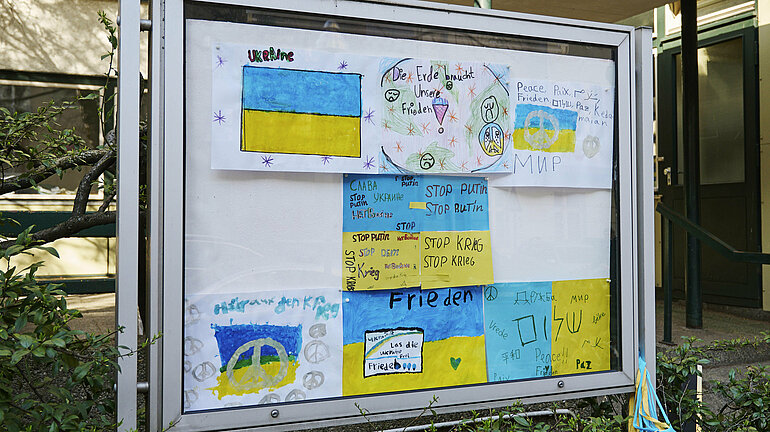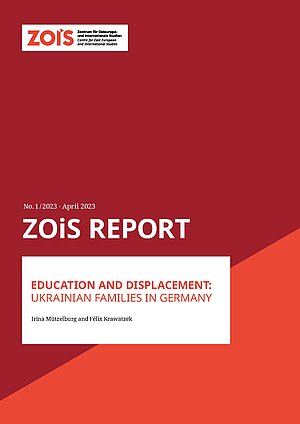Education and Displacement: Ukrainian Families in Germany

Summary

The escalation of Russia’s war against Ukraine since February 2022 has prompted one of the most significant displacements of people in post-1945 Europe. Of the more than eight million people currently staying outside of Ukraine, most are women and one-third are children. This report focuses on the question of education in the context of displacement, looking specifically at the challenges and conditions that emerge in the very first months after arrival. The educational situation of children is of utmost importance for the social integration of both parents and children and, alongside the labour market integration of parents, a crucial factor in understanding how Ukrainians think about their future.
We draw on an original online survey conducted among displaced Ukrainian parents in Germany in the summer of 2022 as well as numerous qualitative interviews with both parents and pupils. The findings show the extent to which pursuing their education in parallel in Germany and Ukraine is placing a double burden on young Ukrainians. At the same time, the research sheds light on the reasons for educational choices and how families navigate this new situation. These are the key findings:
- In the summer of 2022 and in the following months, in particular secondary school-aged children continued with their Ukrainian education, even if they were enrolled in German schools. This was facilitated by previous investment by the Ukrainian state in the digitisation of educational materials during the Covid-19 pandemic.
- The reasons for continuing Ukrainian education frequently relate to a desire to preserve one’s Ukrainian identity and language, but also to a fear that without a Ukrainian education, a child’s future prospects would be jeopardised. For the Ukrainian state, it is crucial to keep children involved in the national curriculum in order to increase the likelihood of their possible return.
- The prospect of return is a determining factor in families’ educational choices. Those who plan to leave Germany as soon as possible are less motivated to send their children to a German school. At the same time, the daunting reality of the ongoing war has implications for the personal wellbeing of these respondents, and those who desire a quick return to Ukraine are the most likely to report feelings of lethargy. Conversely, those who intend to stay in Germany for the foreseeable future are more deeply involved in their local German communities.
- The age of the child matters greatly in the educational choices parents make. Especially for teenagers, the transition into the German educational system is more difficult due to language barriers but also different expectations and cultures of education. Pupils approaching the end of their secondary schooling, moreover, face the challenge of transitioning from the school system into vocational training or university, which is particularly difficult without proficiency in German and recognised diplomas.
- There is a correlation between a parent’s financial and social status and the extent to which they are involved in their children’s education. Those with a higher financial and social status are significantly more invested in their child’s education and articulate higher expectations for their child’s education in Germany. They also tend to want their child to be included in regular rather than integration classes. Socio-economic inequalities in the country of origin are therefore reproduced in displacement.
- Educational systems and norms are vastly different in Germany and Ukraine. Some Ukrainian families express frustration about what they see as the poor quality of teaching in German schools and worry about the implications of this for an anticipated return. Another set of families, however, appreciates the child-centred education they have encountered, the respectful treatment of young people, and the sensitive ways in which German authorities deal with children fleeing war.
- The German education system was already at its limits prior to the arrival of Ukrainian children. Nevertheless, thanks to goodwill on the local level and a sense of pragmatism, virtually all of them have been integrated into local schools.